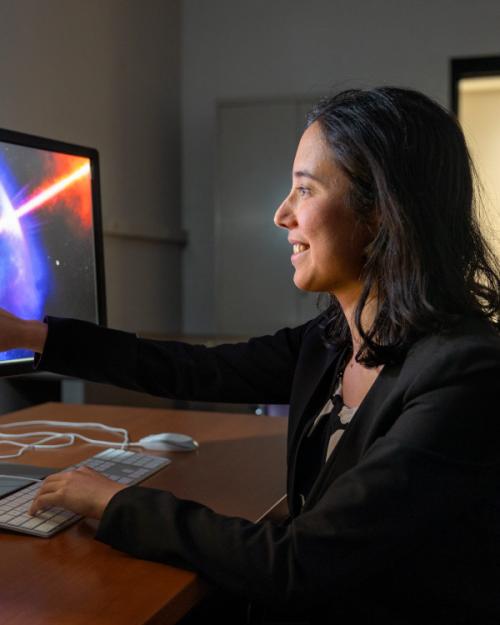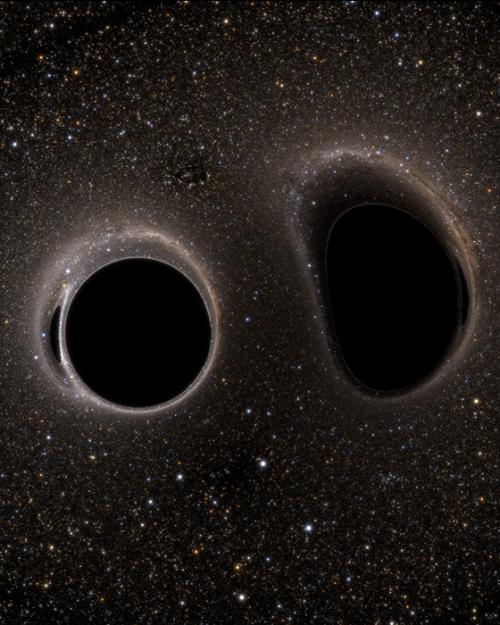Time Magazine has named Britney Schmidt, associate professor of astronomy in the College of Arts and Sciences and Earth and atmospheric sciences in Cornell Engineering, to the 2023 list of the world’s 100 most influential people – a list which also includes President Joe Biden, Beyonce and actors Ke Huy Quan and Pedro Pascal.
Each year, the Time100 features people who have changed the world, scientific pioneers along with innovators, artists, leaders, titans and icons. Schmidt was recognized for her contributions to climate science, following the recent publication of surprise results about the melting of the imperiled Thwaites Glacier in West Antarctica. The lead author of the companion paper from the project, Peter Davis of the British Antarctic Survey, was also named.
The Thwaites Glacier is roughly the size of Great Britain or Florida and is particularly susceptible to climate and ocean changes. The total collapse of the glacier would contribute an additional 65 centimeters to sea-level rise, whilst also destabilizing surrounding snow and ice.
Schmidt and her team develop robotic tools and instruments and use spacecraft to study planets. By exploring Earth’s ice shelves and glaciers and the oceans beneath them, Schmidt’s team helps to capture the impacts of changing climate on the cryosphere, while understanding analogs for Ocean Worlds like Jupiter’s moon Europa.
Icefin, the underwater, under-ice robotic oceanographer she and her team developed, allowed the team from the International Thwaites Glacier Collaboration to access to environments under ice shelves that had never been directly observed.
Shaped like a torpedo, 13 feet long and 10 inches wide, Icefin carries cameras, sonar equipment, speed sensors, water column measuring tools and other devices. The team slips it into open water through a hole
“Using Icefin, we could see for the first time how and where significant melt under the ice shelf is happening,” Schmidt said. “These new views show us how change is happening under the ice, revealing complex and intricate systems that are responding to climate change and driving sea level rise. Antarctica may feel distant and rugged, but the truth is that it is incredibly vulnerable, and that changes there effect every one of us. Understanding how the planet responds to our actions is critical for stemming the tide of climate change.”
The TIME100 list recognizes not just influence but how influence can be wielded, editors said.
“If crisis is going to unite us, we must find within ourselves that same empathy,” TIME editor in chief and CEO Edward Felsenthal wrote in 2022. “The spectrum of leaders on this list, wielding influence in so many ways, is a reminder that we all have the option to use our power for good.”
Schmidt received a B.S. in physics from the University of Arizona and a Ph.D. in geophysics and space physics from the University of California, Los Angeles. She’s worked on numerous NASA projects, including the Dawn and Europa Clipper missions and the Europa Lander and LUVOIR Space Telescope mission concepts.





